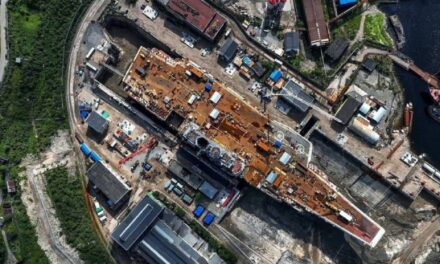We support our Publishers and Content Creators. You can view this story on their website by CLICKING HERE.
If there is one thing that Jimmy Carter’s presidency taught us about economics and politics, it is that the American public abhors inflation.
This is a lesson that Biden did not learn when, in March 2021, he engaged in his American Rescue Plan that increased the budget deficit by a staggering $1.9 trillion.
That plan, an irresponsibly loose monetary policy, and COVID-related supply disruptions laid the basis for inflation to burst to a multi-decade high of over 9 percent by June 2022.
Most political commenters point to high inflation as the main reason for Donald Trump’s decisive win over Kamala Harris last November.
Jimmy Carter’s inflationary lesson is one that the incoming president would do well to heed before fulfilling his election campaign’s economic promises. Fulfilling those promises could lay the groundwork for another inflation burst that could set Mr. Trump up for a shellacking in the 2026 mid-term elections.
To be sure, inflation’s 1980 surge to 13.5 percent was largely beyond Jimmy Carter’s control. Indeed, it was mainly the result of the second international oil price shock in the wake of the Iranian revolution and the Federal Reserve’s loose monetary policy before Paul Volcker took over from William Miller as Federal Reserve Chair.
Nevertheless, the electorate held Mr. Carter responsible for the country’s economic malaise. That contributed significantly to Ronald Regan’s 1980 landslide election victory over Mr. Carter.
Judging by President-elect Donald Trump’s economic plan on the campaign trail, it would seem that he fails to appreciate the inflation risk that his plan poses. At a time when the Federal Reserve is yet to meet its 2 percent inflation target, Mr. Trump is proposing to extend the 2017 Tax Cut and Jobs Act and to eliminate the income tax on social security benefits and tips.
At the same time, he is proposing to deport up to 10 million undocumented workers and to impose a 60 per tariff on imports from China and one of 10-20 percent on imports from the rest of our trade partners.
According to the Committee for a Responsible Budget, if implemented, Mr. Trump’s tax cuts would cause the budget deficit to balloon from its already high level of over 6 percent of GDP.
It would also add some $7 ¾ trillion to the public debt over the next decade. Such budget profligacy would risk another bout of economic overheating that could cause inflation to rise again.
Further clouding the inflation outlook are Mr. Trump’s aggressive import tariff proposal and his planned deportation of millions of undocumented workers.
According to Goldman Sachs, the tariff proposal could add close to 1 whole percentage point to inflation if fully implanted.
Donald Trump from 2017. Image Credit: Gage Skidmore.
Meanwhile, the mass deportation must be expected to add importance to food inflation and building costs, given the sizeable share of undocumented immigrants in the agriculture and building sectors of the economy.
If there is a glimmer of hope, it is that Mr. Trump’s economic advisors might remind him of how decisive the inflation issue was in his decisive election victory over Kamala Harris. Maybe he will water down his campaign trail economic promises and spare us all from the horrors of another inflationary burst.
About the Author: Dr. Desmond Lachman
American Enterprise Institute senior fellow Desmond Lachman was a deputy director in the International Monetary Fund’s Policy Development and Review Department and the chief emerging-market economic strategist at Salomon Smith Barney.

 Conservative
Conservative  Search
Search Trending
Trending Current News
Current News 





